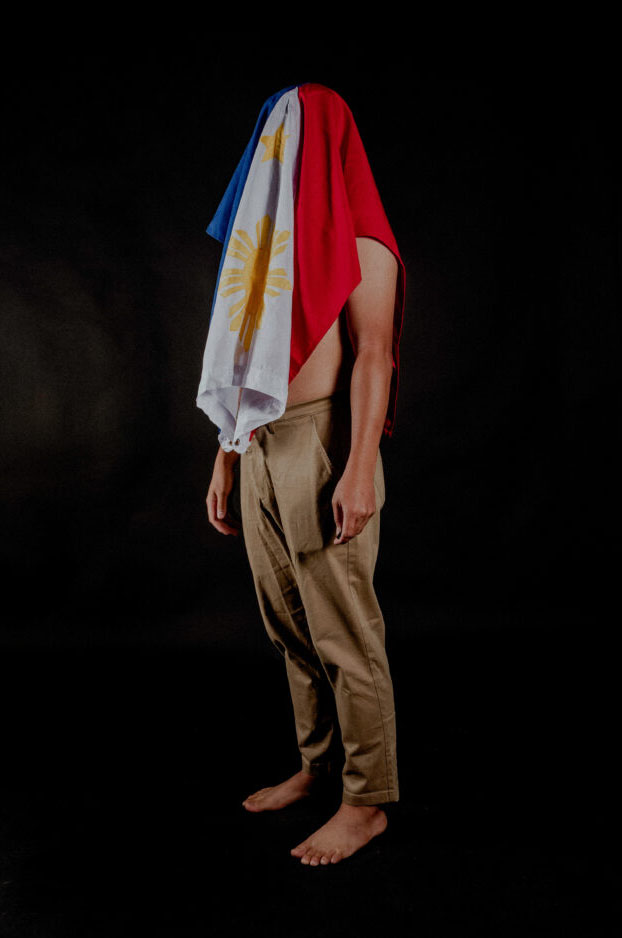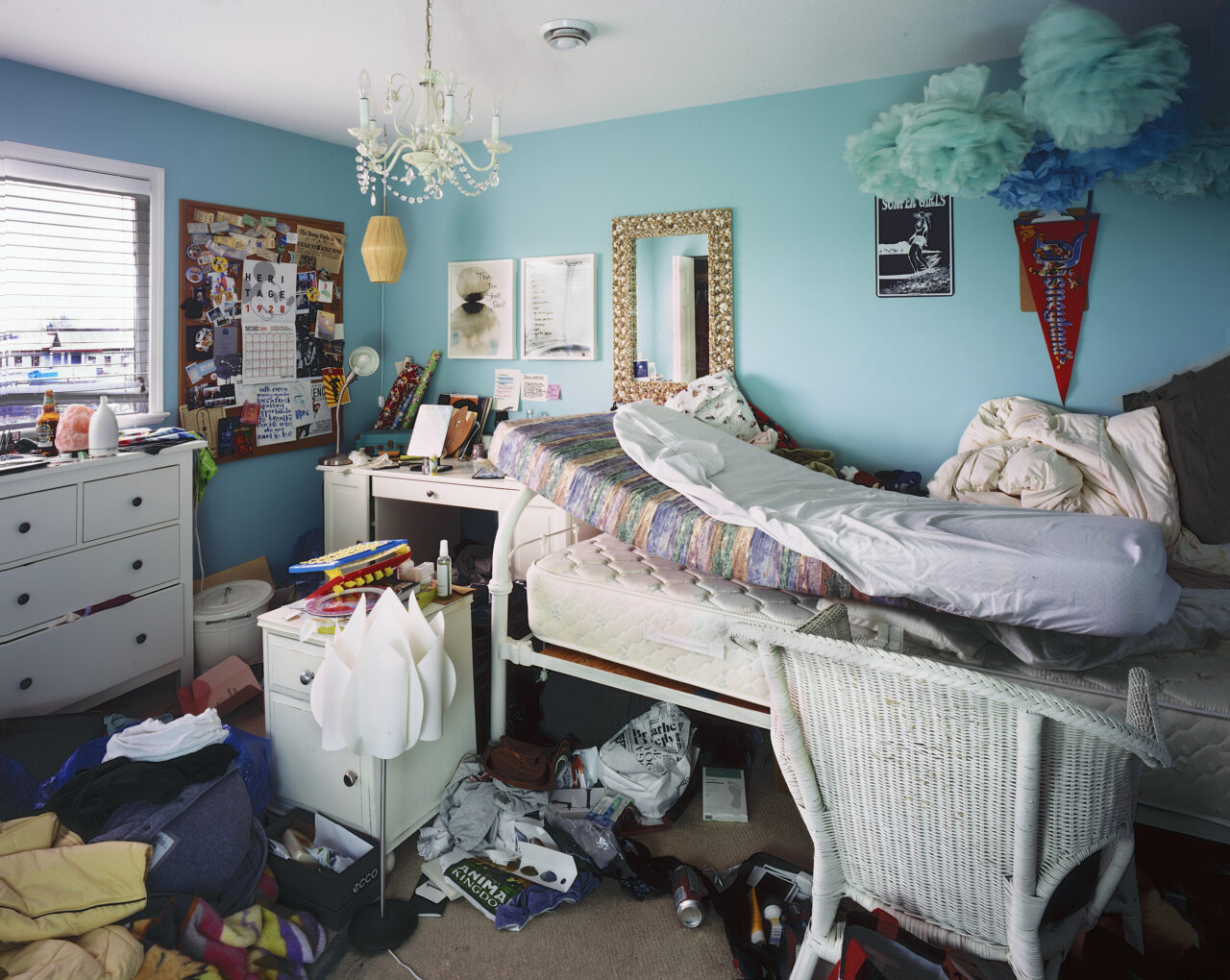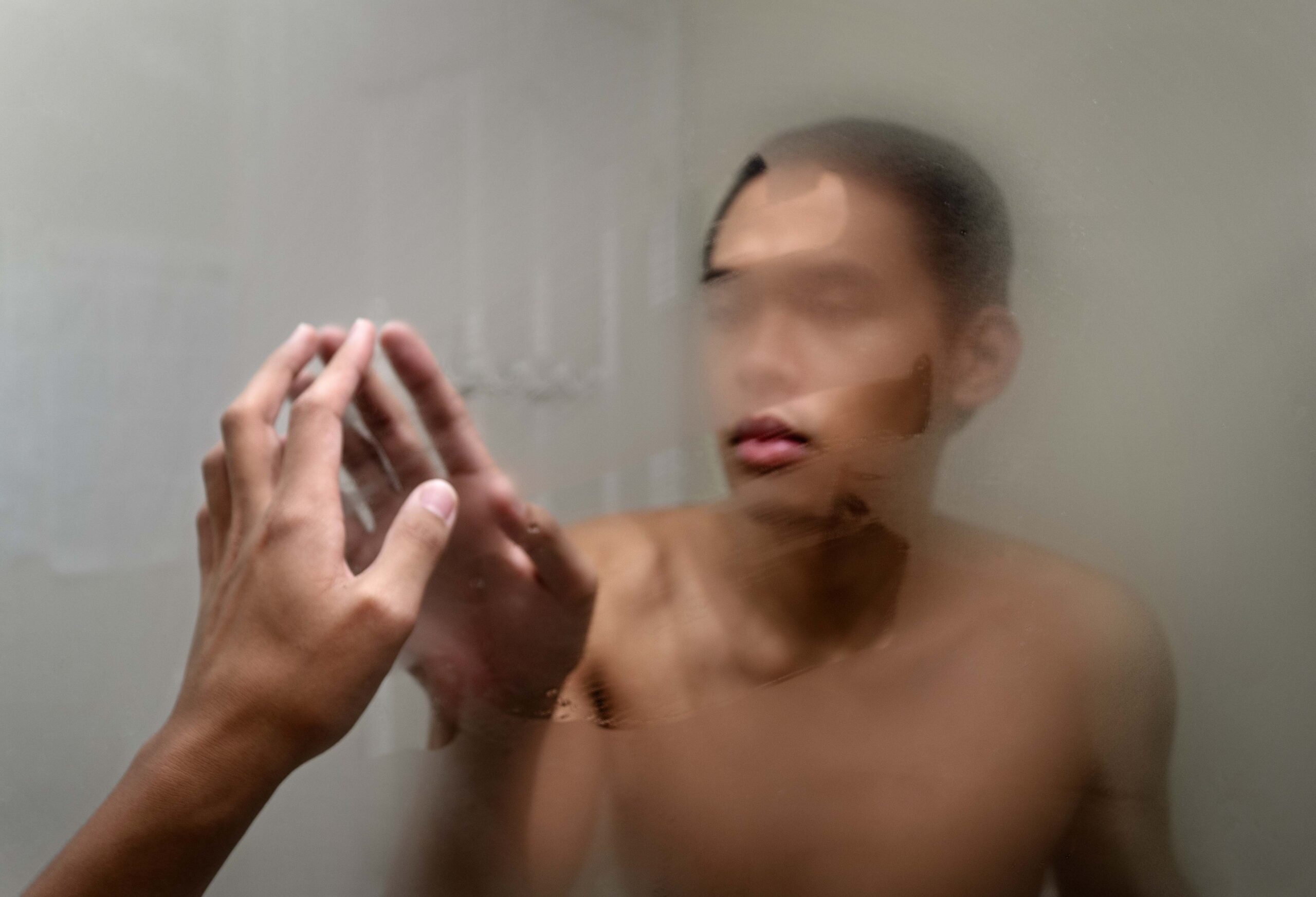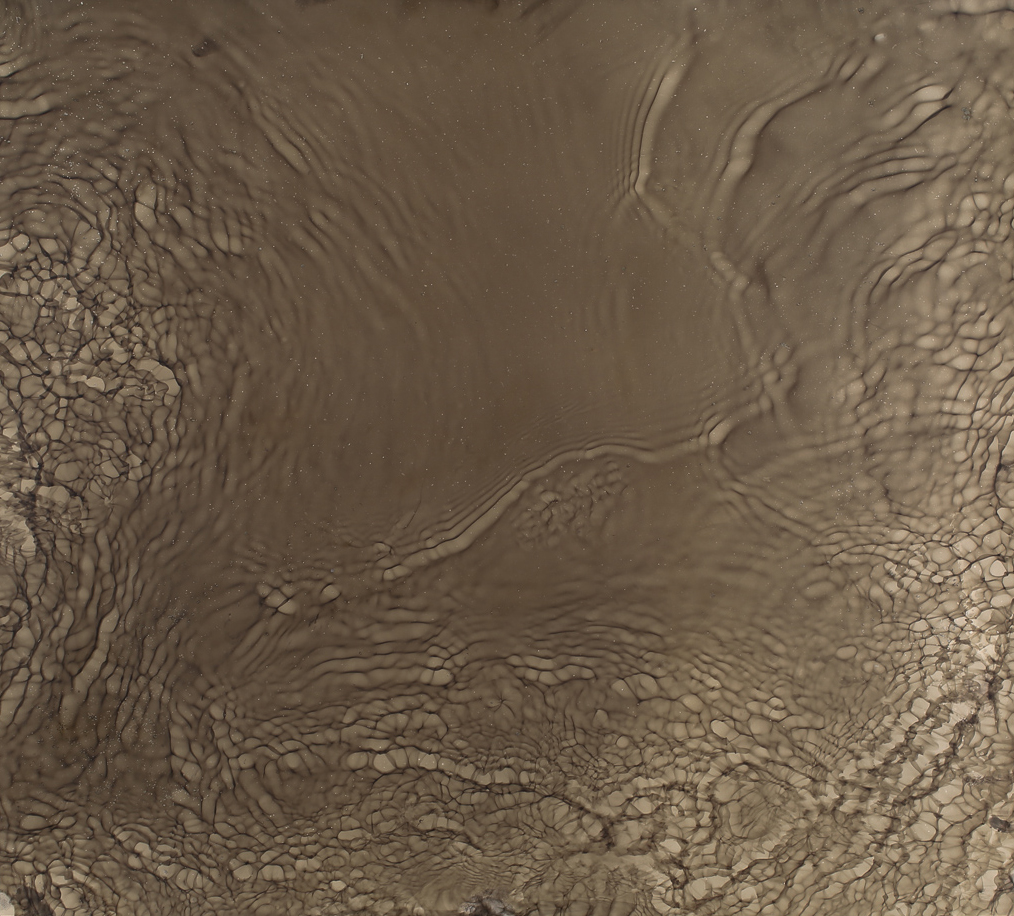Truth, Intimacy and the Power of Photography through the Lenses of Khim Hipol, Abigail Pfortmueller, David Aquino and Sidney Gordon
By Charisma Christal Thomas
What can a photograph reveal? From deconstructing post-colonial symbology to understanding family dynamics, it turns out that a photograph can reveal a lot. In celebration of the Stranger Than Fiction exhibition opening on April 6th, we talked to participating Capture x Emily Carr artists, Khim Hipol, Abigail Pfortmueller, David Aquino and Sidney Gordon about how the notions of truth and intimacy function in their work.

Khim Hipol’s Anak ng Lupang Hinirang (Child of the Chosen Land) series (2021). Image courtesy of the artist.
Khim Hipol, whose photographic practice started in photojournalism was always told to “capture images in their truth.” However, he soon discovered this was a fallacy – a simple change in composition was powerful enough to change the narrative of what is depicted. Khim’s photography series, Anak ng Lupang Hinirang (Child of the Chosen Land), ruminate on photography’s role in storytelling and perception through iconography. By using the human body and adorning it with symbolic objects tied to the Filipino national identity, he opens an intimate discourse on patriotism, nationalism and the distortion of national identity post colonization. In his artist statement, Khim writes, “these objects, integrated with the body, pay homage to the Filipino national identity and employ the conventions of familiar tropes of this identity to rearticulate and question each icon and the histories it bears.”

From Abigail Pfortmueller’s Home series (2021). Image courtesy of the artist.
Exhibiting artist Abigail Pfortmueller offers the viewers another vantage point about truth and intimacy, this time, around familial dynamics. For her contribution, Abigail revisited her childhood memories to investigate the subjectivity of truth in relation to time. Abigail’s Home (My Bedroom) takes the audience into the artist’s mother’s home through a series of un-staged photographs. Abigail aimed to capture the family home without any form of intervention. The raw and honest nature of the project was cathartic for the artist. “Looking into the past, I have been able to see a more accurate truth as to what my childhood really was like. I have always struggled with coming to terms with my childhood, and this project gave me a great opportunity to do so. I believe it was important for myself and my family to see ourselves so raw and real.” The process of observational photography revealed that the most truthful things could come from the strangest parts of our lives, so much so “they feel almost surreal,” Abigail notes.

David Aquino’s Stripped Down series (2021). Image courtesy of the artist.
Meditating on the idea of personal truths, David Aquino’s self-portraiture series invites the viewers to a share an intimate moment with the artist. While brainstorming ideas for the exhibition, David pondered on the question “what do we reveal, show and conceal,” which led the artist to use the bathroom as a space for exploration. The resulting work, Stripped Down, contemplates on the idea of self-representation, revealing the tensions and arise from the duality of one’s true self versus how they represent themselves out in the world. For David, the intimacy of work is only truly realised by being both the storyteller and the subject matter, “using yourself [as the subject] further activates the story and message you are trying to tell,” allowing for an authentic and vulnerable representation of the truth. David hopes this vulnerability opens up a space for the viewer to self-reflect, “my piece literally feels like a mirror, so I hope people take the time to reflect, slow down, [take stock of when they feel like their truest selves] and take care.”

Sidney Gordon’s X̱á7elcha (Lynn Creek) Watergrams series (2021). Image courtesy of the artist.
Sidney Gordon brings a fresh perspective on the concept of truth through their intimate collaboration with non-human life in their cameraless photographic series, X̱á7elcha (Lynn Creek) Watergrams. By capturing direct prints of water refractions using submerged photographic paper, Sidney worked collaboratively with the river, allowing it to be the true author of the photographs. They explain, “the idea for this work came out of spending a lot of time at this specific area at Lynn Creek, [where] I would always observe the way the light hit the water and the patterns it created through its refractions. I wanted to find a way to capture those refractions in a way that felt most true to the elements that were creating them.” Not wanting to intervene with nature, Sidney built on the kinship they felt with the river and ways to create with and alongside it. Their non-prescriptive approach creates space for an honest discourse about land, ownership and human intervention. Sidney notes, “I had been thinking a lot about my relationship to the land and how to create this work in the most respectful, mindful way possible. I saw this project as a way to acknowledge this and the longstanding history of Lynn Creek’s settler impact, while touching on the underlying topic of photographic waste.”
The work of these artists and 13 others will be on display at Emily Carr University’s Michael O’Brian Exhibition Commons Gallery from April 6 through 30. For more information on the exhibition and accompanying events, please visit Capture x Emily Carr Exhibition: Stranger Than Fiction.
Funding for this partnership and exhibition was provided by the Co-Op and Work Integrated Initiative of the Ministry of Advanced Education and Skills Training, by the Government of Canada’s Innovative Work-Integrated Learning Initiative operated by CEWIL iHUB and generous donation from Wesgroup.
